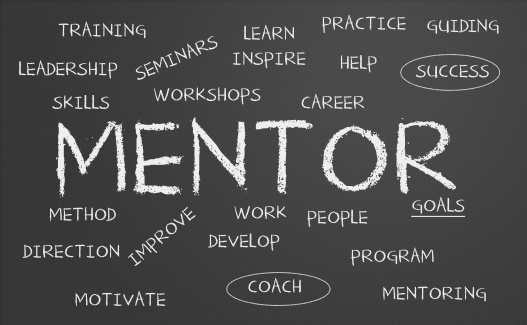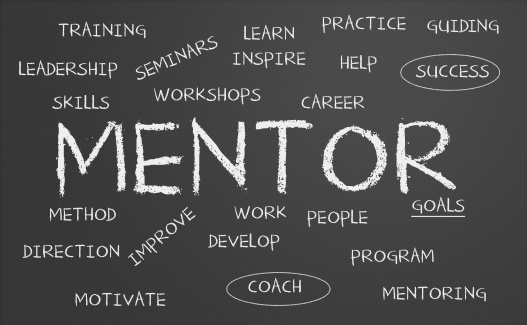 Here’s an interesting article about how to make the mentor/mentee relationship work through a new American Nephrology Nurses’ Association program called the “Pay It Forward Challenge”. Some excellent points are provided about how to make this important relationship work such as living near each other so you can meet in person for meetings. This seems pretty intuitive, but they have confirmed meeting in person is far better than trying to have meetings over the phone. Read on from some great tips about starting or improving mentor/mentee relationships.
Here’s an interesting article about how to make the mentor/mentee relationship work through a new American Nephrology Nurses’ Association program called the “Pay It Forward Challenge”. Some excellent points are provided about how to make this important relationship work such as living near each other so you can meet in person for meetings. This seems pretty intuitive, but they have confirmed meeting in person is far better than trying to have meetings over the phone. Read on from some great tips about starting or improving mentor/mentee relationships.
Pairing two nurses in a mutually beneficial mentor-mentee relationship can be a little like Match.com. As part of the mentor matching program for the Organization of Nurse Executives, New Jersey, a nurse manager new to leadership lists what she or he wants out of the relationship and where in the state she or he lives, and the ONE NJ Mentorship Committee finds a mentor with the expertise to meet those needs, said Bettyann Kempin, RN, MSN, NE-BC, NP-C, a member of the committee and assistant vice president of medical/surgical services at The Valley Hospital in Ridgewood, N.J.
The success of well-matched pairs who commit to a year of the program can be an important career boost for the new nurse managers, Kempin said.
“The relationship didn’t end after a year,” she said of her own experience as a mentor.
How each nurse gets involved
To become a part of the American Nephrology Nurses’ Association program, potential mentors and mentees complete an online survey that asks for contact information and a list of goals they have developed, said Cindy Richards, BSN, RN, CNN, the organization’s president and pediatric renal transplant coordinator at Children’s of Alabama in Birmingham.
Any ANNA member can participate in the association’s Pay It Forward Challenge, which Richards announced at her recent induction as president; however, mentors must have at least one year of nephrology experience to give them the “solid background needed to help mentor a newer nephrology nurse.”
The nurses have the benefit of pairing with some of the leading nurses in nephrology, which might not always be possible at the mentees’s own organization, Richards said.
For ONE NJ’s program, which focuses on providing guidance for nurse managers, mentees and mentors attend a once-a-year workshop where nurses who want to participate as mentees share what they need help with. Then the mentorship committee sorts through its selection of mentor nurses “waiting to be called up the ranks,” Kempin said.
The program has 17 pairs this year, up from fewer than a dozen when it started four years ago, Kempin said.
Ask your mentor anything
One of the important aspects of the programs is the safe arena for the mentee to ask the mentor the “afraid-to-ask questions,” Kempin said. “It’s almost like big brother, big sister.”
The relationship can provide new nurses with clinical skills, problem-solving and critical-thinking skills and a way to discuss issues that arise on the job, Richards said. “As mentors, we need to foster a positive, encouraging environment for younger, newer nurses.”
Many mentors in the ONE NJ program have said they would have appreciated such a relationship when they were new managers, Kempin said.
“I would have loved to have been able to ask questions of other folks rather than research it and speak with other people I might know,” she said, adding that her network would have been wider faster with a mentor.
Nurses also have the opportunity to step out of their organizations and gain perspective. “They’re getting a different view of acute care hospitalization,” Kempin said.
What makes it work
After receiving feedback from its first mentor-mentee pairs, ONE NJ discovered pairing nurses who are geographically close and who can have face-to-face meetings was key to developing successful relationships.
“Telephone conversations don’t cut it,” Kempin said.
The feedback helped ONE NJ develop a 25-page, evidence-based toolkit of resources that describes the phases of a mentor-mentee relationship, explains the responsibilities of each role, has partnership agreements and relationship assessments and includes checklists for goal formation, meeting preparation and progress evaluation, according to the “Developing Leadership Talent: A Statewide Nurse Leader Mentorship Program” article published in the February issue of Journal of Nursing Administration.
“It’s a nice backbone to the program,” Kempin said.
ONE NJ checks in with the pairs every couple of months during the year to ensure they’ve met in person and are using the toolkit. “Having us check in on them helps keep them on track,” Kempin said. Because the workshop that kicks off the mentorship program happens annually, all of the participants are on the same timeline, she added.
For the ANNA’s one-year program, the mentor leads by example and shares her knowledge and the values of being a professional nurse and “the specific value set needed to work with chronically ill nephrology patients on a long-term basis,” Richards said. “The mentor must also be willing to acknowledge the mentee’s progress and explore where the mentee desires to go in ANNA and nephrology nursing.”
As part of Richards’ new Pay It Forward Challenge, the ANNA will recognize at its national symposium one pair in 2016 and one pair in 2017 with the most robust achievements, Richards said.
Without mentorship to expand their networks, “a lot of times, people get stuck,” Kempin said. But mentorship programs help nurses grow.
“We get rave reviews about it,” she added.







